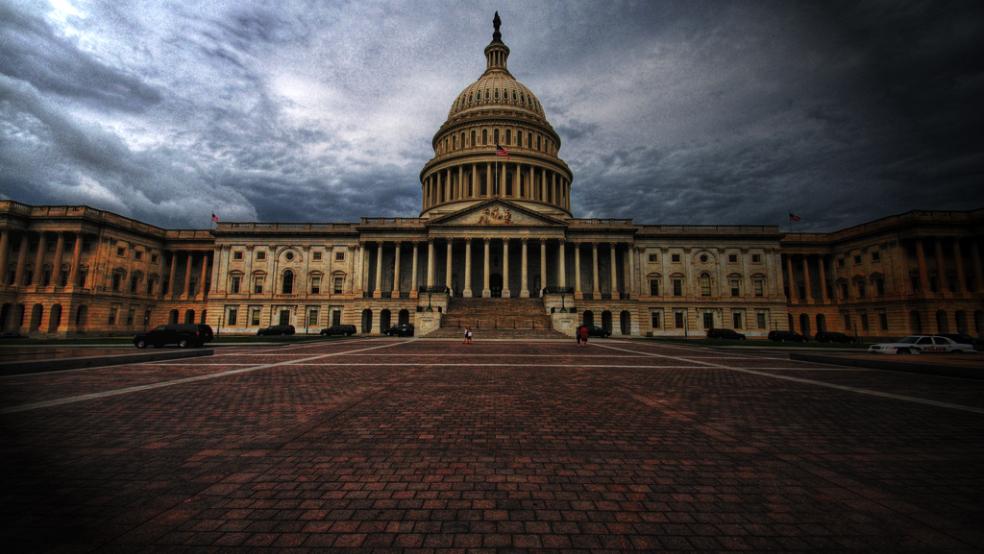Lawmakers took a big step over the weekend toward reaching a spending deal for the 2020 fiscal year, though a major hurdle — funding for President Trump’s border wall — remains in place.
On Saturday, House Appropriations Chairwoman Nita Lowey (D-NY) and Senate Appropriations Chairman Richard Shelby (R-AL) agreed on how to divvy up $1.37 trillion in discretionary spending across 12 appropriations bills, known as 302(b)s. That topline number for fiscal year 2020 was established this summer, and lawmakers have been working on the details of how to spend the money ever since. The 2020 fiscal year began on October 1, and the government has been funded through short-term funding bills, known as continuing resolutions, or CRs, in the meantime.
The topline agreement clears the way for Congress to start negotiating the 12 appropriations bills that fund the government ahead of a December 20 deadline established by the latest stopgap funding deal signed into law last week, just hours before a potential shutdown. Lawmakers are expected to move the spending bills in packages covering multiple departments while leaving the most controversial funding — including that for the Department of Homeland Security, which includes money for border barriers — for last. CNN’s Phil Mattingly said that Congress could pass some of those smaller packages before the December deadline, although Politico’s Caitlin Emma reported that the details of the individual bills won’t be released until there’s agreement on the full set of 12.
Reduces the odds of a shutdown: The agreement makes a pre-Christmas shutdown less likely, since it removes one major hurdle to passing funding bills for 2020. Even so, there are still plenty of thorny issues that need to be resolved, any number of which could throw a wrench into the budgetary machinery. “Besides funding for the border wall, lawmakers and the Trump administration have dozens of disputes to settle including whether to backfill $3.6 billion in military construction funds that were diverted to wall construction earlier this year,” Roll Call’s Jennifer Shutt said. Democrats say they will not fund those military projects, highlighting a sticking point that could lead to another short-term funding bill in December for at least some portion of the federal government, or even a partial government shutdown.
A potential win for Trump’s budget hawks: Some fiscal conservatives in the White House, including acting Chief of Staff Mick Mulvaney, have long pushed for significant spending cuts or at least a spending freeze, even as Trump has agreed to huge spending increases over the last three years. Politico’s Sarah Ferris and Burgess Everett said Monday that if Congress is forced to sign yet another short-term funding bill in December covering some portion of the government, those budget hawks will get at least part of what they want, since the short-term deals freeze spending at least year’s levels, denying the multi-billion-dollar increase lawmakers agreed to last summer.
“For conservatives, a deadlock between Democratic and Republican leaders might be the best possible outcome,” Ferris and Everett said. “The budget deal’s spending increases won’t go into effect, Trump keeps his border wall transfer authority and Congress appears paralyzed during Democrats’ impeachment drive.”
Some Republican lawmakers readily agreed. “Freezing spending would be better than increasing spending,” Sen. Ted Cruz (R-TX) said. “With a Democratic House consumed with impeachment, there is very little appetite for the sorts of common-sense fiscal policies that could rein in our out-of-control deficits and debt.”
But defense hawks want a deal: The Pentagon stands to lose out on a big funding increase in 2020 if spending is frozen at 2019 levels, and that could push lawmakers to reach a full-year agreement. “Some people do [want a CR]. I’m certainly not in the camp,” said Sen. Lindsey Graham (R-SC). “One of the things that [Trump] is most proud of is rebuilding the military. You do a CR, you lose all the benefit of that.” Non-defense spending increases that Democrats had pushed for would also fall by the wayside.
It could all come down to Pelosi and Mnuchin: The Wall Street Journal’s Kate Davidson and Andrew Duehren said Sunday that the fate of the spending deal depends in large part on House Speaker Nancy Pelosi (D-CA) and Treasury Secretary Steven Mnuchin. The pair worked closely together earlier this year to negotiate the two-year spending deal Trump signed in August, successfully avoiding many of the political pitfalls that have made it so difficult to pass funding in recent years.
“They respect each other and they also understand that they have a job to do,” a senior administration official told the Journal. “They’re both there to represent their position, but they’re also there to do the work of the American people and get this budget deal done.”




